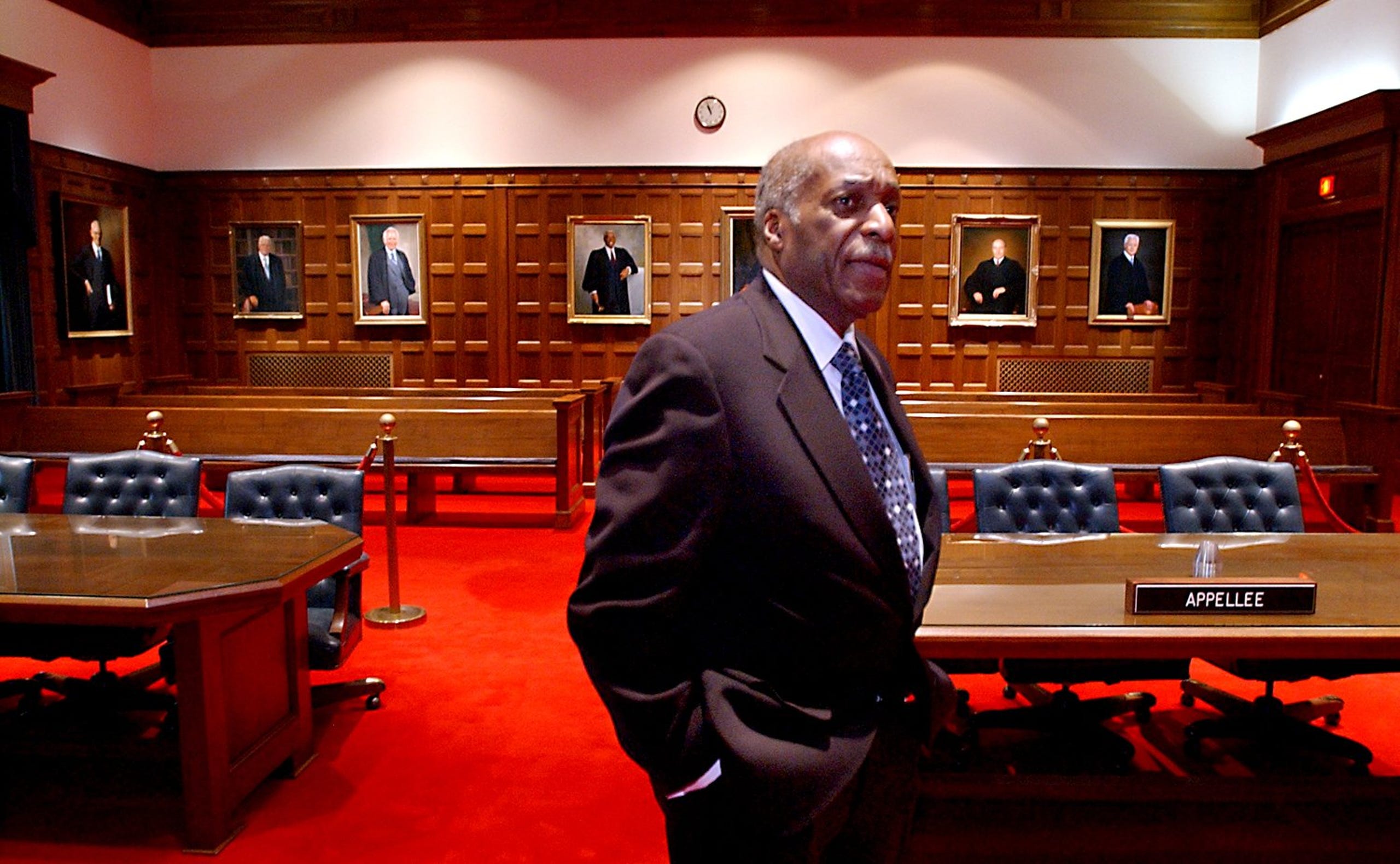OFCCP highlights the many achievements of civil rights leader, Nathaniel R. Jones (1926-2020).
Nathaniel R. Jones served as a lawyer, judge, academic, public servant, and social justice defender. Jones was born in Youngstown, Ohio, and served in the U.S. Army Air Corps during World War II. He then earned a Bachelor of Arts in 1951, before pursuing his Bachelor of Laws degree in 1956.
After four years of private practice, Jones served as executive director to the Fair Employment Practices Commission, and Attorney General Robert Kennedy appointed him as Assistant United States Attorney for the Northern District of Ohio in 1960. In 1967, he was appointed Assistant General Counsel to President Johnson’s National Advisory Commission on Civil Disorders (the Kerner Commission). Following his fulfillment of this role, Jones served as NAACP general counsel.
Over the next decade, he argued several cases before the Supreme Court and led national efforts to end school segregation and defend affirmative action. Jones investigated discrimination in the armed forces, and established the NAACP’s First Amendment defense in the Mississippi Boycott Case. In 1979, President Carter nominated him to serve on the U.S. Court of Appeals where he took senior status in 1995 before retiring from the bench in 2002.
The Judge Carl B. Rubin Legal Society awarded Jones the Jewish National Fund Attorney of the Year award in 2012. Some of Jones’ other accomplishments include receiving the Annual Fellows Award from the American Bar Association’s Young Lawyers Division in 2005, the Ohio Bar Medal Award in 2003, and serving as an honorary Co-Chair and Director of the National Underground Railroad Freedom Center in Cincinnati. The U.S. Congress named the federal building and the U.S. Courthouse in Youngstown, Ohio, in his honor in 2003.
In addition to the previously mentioned accomplishments, Jones also taught at the University of Cincinnati College of Law, the North Carolina Central University School of Law, and the Harvard Law School. He also served on a team of observers for the first democratic elections in South Africa. Jones also devoted his time to serving as a member of the advisory board of the Urban Morgan Institute for Human Rights.
In 1996, Jones chose the University of Cincinnati College of Law Library as the archive for his work, along with other historical materials documenting his career in its entirety. He said he hoped the papers would bring to life the realities for “…some who have forgotten or for those who may never have experienced the indignities of legally enforcing segregation and discrimination.”
The OFCCP has been inspired by the innumerable accomplishments by Judge Jones, and continues to promote equality.
Founded in 1998, OutSolve has evolved into a premier compliance-driven HR advisory firm, leveraging deep expertise to simplify complex regulatory landscapes for businesses of all sizes. With a comprehensive suite of solutions encompassing HR compliance, workforce analytics, and risk mitigation consulting, OutSolve empowers organizations to navigate the intricate world of employment regulations with confidence.
Featured Posts

Bye-Bye American Pie: OFCCP to Slip Beneath the Waves on September 30, 2025

How to Conduct a Pay Equity Audit Without Creating Legal Exposure
Related Posts

Pay Equity Consultant vs. Pay Equity Software: What’s Best for You?
Choosing Between a Pay Equity Consultant and Pay Equity Software: What’s Right for Your Business? Your internal pay equity audit just flagged a wage...

I-9 Documents: What’s Acceptable and Best Practices
The Form I-9 might seem like just another onboarding form, but it plays a crucial legal role in verifying your employees’ right to work in the United...

Compensation Philosophy: What You Need to Know
Let’s talk about something that Human Resources (HR) plays a large role in that doesn’t always get clearly defined from the beginning. That’s...


